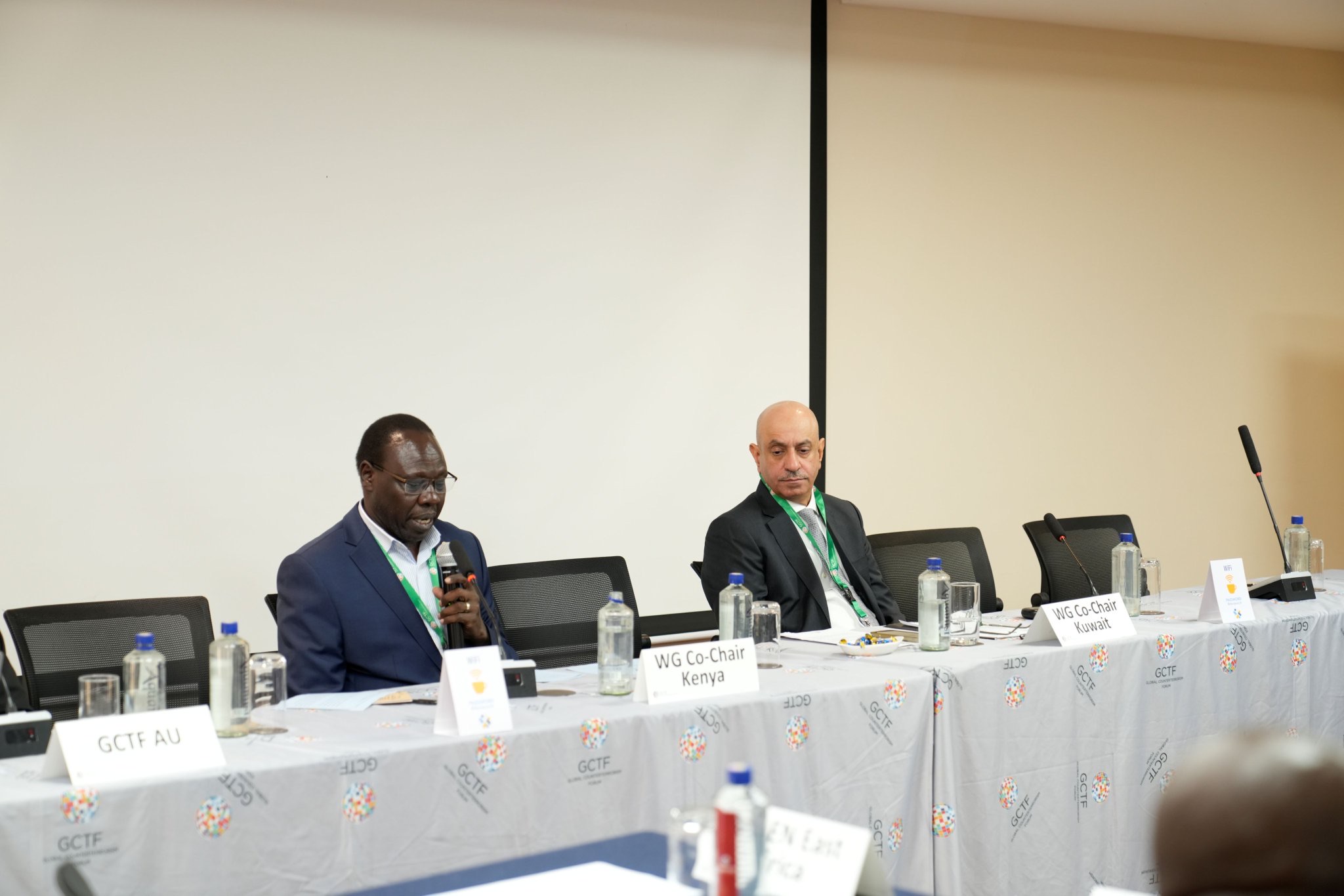
Kenya is using both military action to dismantle
terror organisations and deter future attacks, and at the same time, building
relationships with local communities to weaken the terrorist ideology.
Apart from the hard power approaches, a
programme is in place to enable violent extremists and radicalised people to disengage from violent extremism and reintegrate into mainstream society.
The Director of the National Counter Terrorism
Centre (NCTC), Kibiego Kigen, said there was a need to complement some of the
robust military measures -commonly referred to as hard approaches- with other
soft approaches, including disengagement, deradicalisation, rehabilitation and
reintegration (DDRR).
The use of hard power involves, for example,
neutralising essential terrorist leaders and destroying terrorist organisations
through the use of targeted missile strikes and military action to dismantle
terror organisations and deter future attacks.
Kigen said other softer approaches, said to be
preventive and proactive, involve the use of religious leaders to offer counter
counter-narrative that debunks misinformation about extremism, and also prioritise
rehabilitation over retribution.
The NCTC has also warned that violent extremists
are exploiting the vulnerability of the Kenyan youth to radicalise and recruit
them.
Economic hardship, marginalisation, lack of
education opportunities, among other factors, have made the youth vulnerable, and
the government has already adopted a multi-pronged approach to build and
enhance their resilience.
“Over the years, extremist groups have adapted
tactics, preying on the vulnerabilities of the youth. This reality underscores
the urgency for more coordinated and inclusive approaches in the preventing and
countering violent extremism sector to countering these threats,” he said.
He was speaking during the Global Counter
Terrorism Forum’s East Africa Working Group on Motivational Engagement for
security officers in Nairobi.
The training is part of the 2024-2026 Work Plan
that is aimed at enhancing the skills of security practitioners in the
reception, screening, and assessment of individuals disengaging from violent
extremist groups.
Kigen said the participants were equipped with
pertinent skills to aid them in their work as disengagement officers.
“This knowledge and skills will go a long way in
our global fight against the scourge of terrorism,” he said.
The training was also attended by the Minister
Plenipotentiary Mohammed Al Roumi, Deputy Assistant Foreign Minister for
Development and International Cooperation Affairs, Kuwait.
NCTC said the initiative was born out of the
thematic workshop on Disengagement, Deradicalisation, Rehabilitation and
Reintegration of persons associated with terrorist groups, that took place in
Kuwait City in October last year.
“The participants were taken through the Kenyan
model of Motivational disengagement, where they were equipped with skills in
self-awareness, appreciative communication among others, all aimed at assisting
the target person to disengage from violent extremism,” Kigen said.
He added that the trainees needed to take back this knowledge and skills and tailor-make their own DDRR programs
to suit the needs of their countries in the area of disengagement.
Kuwait’s Al Roumi has also said the programme
offers an opportunity for security officers to exchange knowledge, skills
and experiences in disengagement and rehabilitation from their own countries,
as well as giving opportunity to share good practices from their respective
jurisdictions.
This, he said, will foster and ensure strong
regionally coordinated action in motivating persons of interest involved in
violent extremism to disengage.
“In our interconnected world, East Africa’s
security challenges are reflected across the Middle East and vice versa.
Through programs like this one, we empower member states, not only with tools
to identify the risks but by providing a multilateral platform for exchange of
knowledge and expertise.”
Countries should also take responsibility for
their citizens among the ranks of foreign terrorist fighters and their
families, particularly those in former conflict zones in Syria and Iraq,
according to Al Roumi.
“It is essential to repatriate, rehabilitate and
reintegrate them to prevent these camps from becoming a breeding ground for
future radicalisation and recruitment,” he said.
Since 2018, over 1200 individuals have been
repatriated through Kuwait, as Kuwait supports the repatriation of foreign
terrorist fighters and their families.
In 2024, NCTC held a national public
participation exercise to review and refresh the National Strategy to Counter
Violent Extremism (NSCVE), now rebranded as the National Strategy for
Countering and Preventing Violent Extremism (NSPCVE).
It seeks to address the challenges hindering
meaningful youth participation in preventing violent extremism, and is also
expected to develop actionable solutions for enhancing youth resilience and
engagement.
Kigen said the youth should be empowered as
agents of change rather than exploited as instruments of destruction.
As part of the multi-pronged approach, countries
have also developed laws to prevent violent extremism and radicalisation within
their departments and protect vulnerable people.
The laws, based on the unique security
challenges, will establish county institutions to provide linkages between
national law enforcement agencies and community structures in the prevention of
violent extremism in the respective counties.
Internal Security Principal Secretary Dr Raymond
Omollo said the Prevention of Violent Extremism (PVE) Model Bill is a framework
that provides countries with the tools to effectively integrate prevention
strategies into their governance structures.
It also mainstreams funding for these initiatives, fosters collaboration between national and county governments, and empowers communities to take a proactive role in combating extremism, he said.















